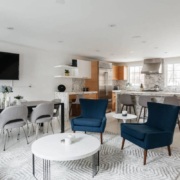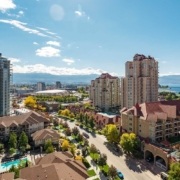Airbnb Regulations in Las Vegas: A Comprehensive Guide
- Best Cities for Airbnb in USA: Top Big US Cities for Airbnb Investment
- Navigating the Complexities of Airbnb Profitability in Las Vegas
- Why Las Vegas Airbnb investment is a Smart Decision: A Guide Backed by Latest AirDNA Data
- Best Airbnb Neighbourhoods in Las Vegas from Hosts’ Point of View
Introduction
Airbnb has revolutionized the way people think about travel accommodations, but it’s essential for hosts to understand local regulations to operate legally. Las Vegas has its own set of rules and guidelines for short-term residential rentals, as outlined in the Las Vegas Municipal Code (LVMC) and Assembly Bill 363. Here is a detailed guide to help you navigate the process and ensure your property meets the requirements.
Definition of Short-term Residential Rental
According to the Las Vegas Municipal Code, a short-term residential rental is a commercial use of a residential property where guests rent either the entire dwelling unit or individual rooms within the unit for less than 31 consecutive days. It excludes facilities like community residences, transitional living spaces for released offenders, and other specific types of dwellings defined under LVMC, Chapter 19.18.
The Three-Step Approval Process

1. Planning
The first step requires approval from the Planning Department. You can initiate this process by calling (702) 229-6301. Short-term rentals are permitted in most residential neighborhoods, except for several master-planned areas like Summerlin, Town Center, and Skye Canyon, among others. Also, if your property is within a gated community or an owner’s association-controlled area, a letter from the association acknowledging the short-term rental is required.
Conditional Use Verification (CUV)
This process verifies if your property is suitable for a short-term rental. Note that short-term rentals are not allowed in apartment buildings.
As of December 5, 2018, a property may be permitted to operate as a short-term residential rental under conditional use, so long as it satisfies the criteria listed below:
- The property must be the primary residence of the owner.
- The home cannot have more than three bedrooms, as recorded in the Clark County Assessor’s records.
- The property must be situated at least 660 feet away from any other short-term residential rental and at least 2,500 feet away from a Resort Hotel.
- The property’s location must be in a zone where short-term residential rentals are allowed.
2. Inspection
The property must be inspected for life safety codes and other building standards. Inspections will also confirm the number of bedrooms and check for building permits for any modifications made to the original structure. Safety requirements include fire extinguishers, interconnected smoke detectors, and carbon monoxide detectors.
3. Licensing
Finally, you must obtain a business license. The license comes with several stipulations, such as providing proof of liability insurance with a minimum amount of $500,000, displaying a placard listing the maximum occupancy, and providing a 24-hour contact number for complaints.
Useful link:
Owner Occupancy Requirement
The property must be owner-occupied during each rental period, and the dwelling should be the owner’s primary residence. Owners need to maintain an ownership stake of at least 25% in the property and must reside at the unit throughout the rental period for it to qualify as “owner-occupied.”
Maximum Occupancy
The maximum allowed occupancy is two people per bedroom, excluding children under the age of 12, or according to limits established by the Uniform Housing Code. The total occupancy cannot exceed 16 people at any given time.
Other Regulations

- No accessory structures like casitas, tents, or trailers can be used for dwelling purposes.
- A 660-foot separation is required between short-term residential rentals.
- The business license number must be included in all advertisements.
- The property owner must be the license holder.
Tax Collection and Submission by Airbnb in Nevada
Transient Occupancy Tax will be applied to the booking. This tax’s rate is 13%-13.38% of the total listing price, which includes any cleaning fees, for the initial 30 nights of the reservation.
- TRANSIENT LODGING ESTABLISHMENT ROOM TAX INSTRUCTIONS & GUIDELINES
- Occupancy tax collection and remittance by Airbnb in Nevada
- The Ultimate Income Tax Guide for Las Vegas Airbnb Hosts
Conclusion
Understanding and complying with these regulations is crucial for operating a legal and successful Airbnb in Las Vegas. From planning to licensing, each step of the approval process is designed to ensure that short-term residential rentals meet all local codes and standards. With careful planning and adherence to these guidelines, hosts can provide a safe and enjoyable experience for their guests.
Explore:
- Guide to Short-Term Rental Regulations in Miami and Miami Beach
- Atlanta Airbnb Regulation
- Understanding Airbnb Regulations in Los Angeles
- Airbnb Regulations in Greater Los Angeles Area: West Hollywood, Pasadena, Glendale, Huntington Beach, and Riverside
- A Guide to Airbnb Rules in Oceanside, CA
- Understanding Short-Term Rental Rules in Houston
- Austin, TX, Airbnb Rules and Regulations
- St. Augustine’s Comprehensive Guide to Short-Term Rental Regulations
- What Every Host Needs to Know About Kissimmee Airbnb Regulations
- Short-Term Rental in the Big Apple: Mastering New York Airbnb Regulations












